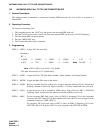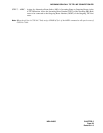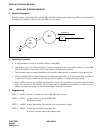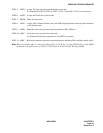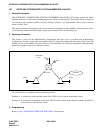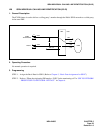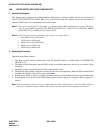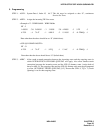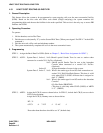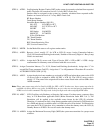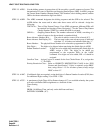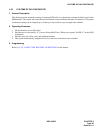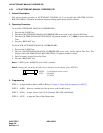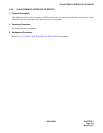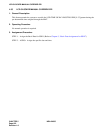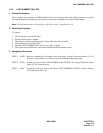
CHAPTER 5 NDA-24305
Page 96
Revision 1.0
LEAST COST ROUTING-3/6-DIGIT-PRI
L-31 LEAST COST ROUTING-3/6-DIGIT-PRI
1. General Description
This feature allows the system to be programmed to route outgoing calls over the most economical facility
(DDD). Based on the area code and office code dialed (6-digit analyzing), the system examines the
programming tables and chooses the facilities in the order specified. This service is the only way to access PRI
interface into ISDN.
2. Operating Procedure
To operate:
1. Lift the handset; receive Dial Tone.
2. Dial the access code (usually “9”); receive Second Dial Tone. (When you assigned “2nd DT=1” in the ASPA
command.)
3. Dial the area code, office code and telephone number.
4. The system automatically completes the call via the most economical route.
3. Programming
STEP 1: Assign the Basic Data For ISDN. (Refer to Chapter 3, “Basic Data Assignment for ISDN”.)
STEP 2: ASYD - System Data 1, Index 6, bit 0: Should special Sender Tone be sent to station when
connected to a sender? 0/1: No/Yes. (Optional)
bit 2: Should special Sender Tone be sent to the Attendant
Console when connected to a sender? 0/1: No/Yes.
(Optional)
Index 65: Assign the number of routes in the system.
System Data 2, Index 2, bit 0: What is the sender type for an OG trunk connection to a
station? 0/1: Dial Pulse/Push Button. This data is valid
only when CDN 2, ONSG of Route data is assigned as
data “3”, PB/DP.
bit 1: What is the sender type for an OG trunk to the Attendant
Console?
0/1=Dial Pulse /PB(DTMF)
(This data is valid only when CDN2 (ONSG) of ARTD
is “3”. (PB/DP.)
STEP 3: ARTD - Assign the LCR (S) route as shown below. In CDN 13, include the LCR (S) access code in
LCR (S) development.
Assign the LCR (S) Dummy route as shown below:
RT : 31
6-TCL : 4 7-L/T : 1 13-AC : 1
Data other than the above should be set “0” (default data).



